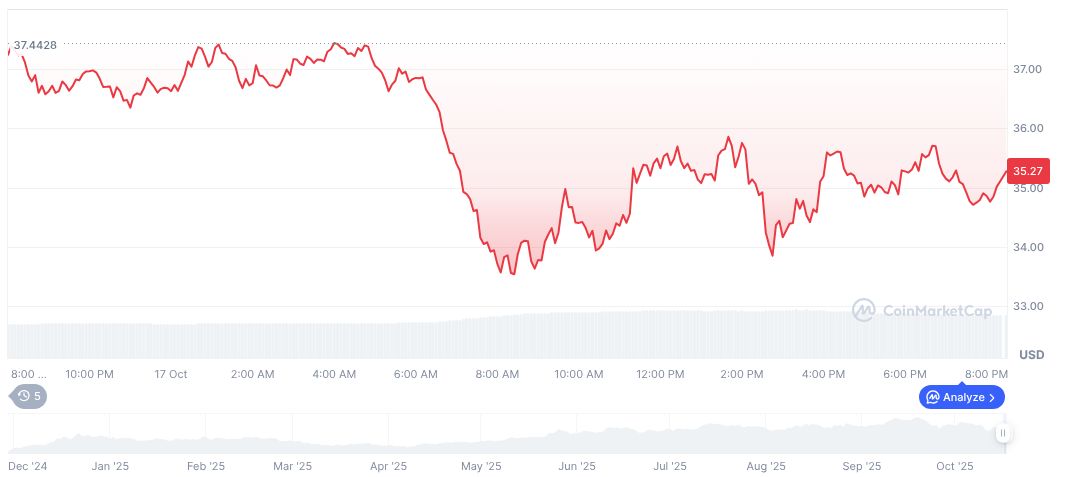- Hyperliquid’s insider control prompts decentralization concerns.
- Regulatory scrutiny intensifies without formal regulations.
- Backers support infrastructure despite centralization critiques.
ChainCatcher reports via Bloomberg that Singapore-based Hyperliquid, backed by Paradigm and Pantera Capital, faces decentralization concerns due to its tightly controlled insider structure.
The limited validator nodes and absence of regulatory frameworks highlight vulnerabilities, impacting community trust and prompting potential scrutiny, especially given the substantial influence of Hyperliquid’s foundational team.
Regulatory Scrutiny Focuses on Centralized Control at Hyperliquid
Hyperliquid operates under a minimalist framework with Paradigm and Pantera Capital as supporters. The platform blocks U.S. users but permits blockchain trading without identity verification. Regulatory scrutiny is looming due to its centralized power, with only 24 validator nodes controlled by the Hyper Foundation. Washington’s stance has so far allowed Hyperliquid to function without direct governmental action.
As regulatory attention increases around decentralized platforms, industry critics point to significant insecurities due to the Hyper Foundation’s control over nearly two-thirds of staked HYPE tokens. Market feedback reflects mixed sentiments, with some stakeholders recognizing the foundation’s efforts to abstain in governance votes. Despite potential regulatory challenges, the Hyperliquid ecosystem continues to advance, drawing capital interest for its infrastructure capabilities.
“If you control more than two-thirds of the stake, you basically can achieve control on-chain.” — Kam Benbrik, Chorus One
Token Dynamics and Historical Industry Comparisons
Did you know? Hyperliquid’s governance structure mirrors early decentralized exchanges that faced centralization criticisms, hinting at historical regulatory responses.
Hyperliquid’s HYPE token saw a price of $35.21 with a market cap of $11.85 billion as of October 17, 2025, according to CoinMarketCap. Although trading volume increased by 26.09% within 24 hours, the token experienced a 5.13% downturn, contributing to a 37.46% decline over the past 30 days.
Elsewhere, Coincu’s analysts suggest that while Hyperliquid’s design supports fast transactions, regulatory interventions may compel a shift towards greater decentralization and identity verification. The platform’s approach may need realigning with evolving financial regulations to sustain its growth trajectory in global markets.
| DISCLAIMER: The information on this website is provided as general market commentary and does not constitute investment advice. We encourage you to do your own research before investing. |
Source: https://coincu.com/news/hyperliquid-centralization-concerns/
